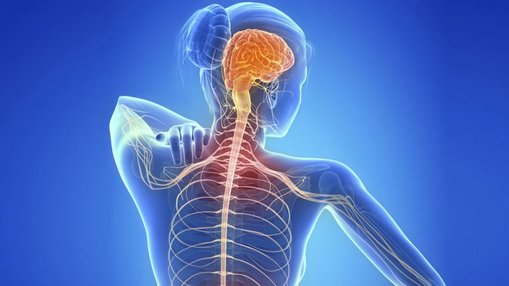Vitamin D: The Only Dietary Supplement Showing Significant Benefit for MS

A review recently published in JAMA Neurology has found vitamin D to be the only vitamin or dietary supplement that shows evidence of benefiting individuals with multiple sclerosis (MS).
Researchers compiled a summary of the current human studies data, safety concerns, and biological plausibility for common vitamins and supplements. Vitamin A was associated with decreased interleukin 17, T-bet, retinoic acid-related orphan receptor gamma t (RORγt), and interferon gamma (IFN-γ), as well as increased transforming growth factor beta 1 and forkhead box protein P3 and an improvement in fatigue. Vitamin B1 was linked with reduced fatigue. Vitamin B7 correlated with improved visual sharpness, muscular strength, energy levels, visual evoked potentials, mood, and motor coordination.
Vitamin D was associated with a lower relapse rate and fewer MRI-detected lesions. Vitamin B12 treatment correlated negatively with visual evoked potentials. Of these, only vitamin D's associations were found to be significant enough to merit clinical application. Vitamins B2, B3, B5, B6, B9, C, and E showed no effects on individuals with MS.
Of dietary supplements, creatine, curcumin, green tea extract, and resveratrol showed no effect in subjects with MS. Caffeine, carnitine, coenzyme Q10, ginkgo biloba, lipoic acid, polyunsaturated fatty acids, and probiotics showed some effects, but none were significant.
https://www.neurologyadvisor.com/multiple-sclerosis-advisor/vitamin-supplement-diet-ms/article/765464/
Researchers compiled a summary of the current human studies data, safety concerns, and biological plausibility for common vitamins and supplements. Vitamin A was associated with decreased interleukin 17, T-bet, retinoic acid-related orphan receptor gamma t (RORγt), and interferon gamma (IFN-γ), as well as increased transforming growth factor beta 1 and forkhead box protein P3 and an improvement in fatigue. Vitamin B1 was linked with reduced fatigue. Vitamin B7 correlated with improved visual sharpness, muscular strength, energy levels, visual evoked potentials, mood, and motor coordination.
Vitamin D was associated with a lower relapse rate and fewer MRI-detected lesions. Vitamin B12 treatment correlated negatively with visual evoked potentials. Of these, only vitamin D's associations were found to be significant enough to merit clinical application. Vitamins B2, B3, B5, B6, B9, C, and E showed no effects on individuals with MS.
Of dietary supplements, creatine, curcumin, green tea extract, and resveratrol showed no effect in subjects with MS. Caffeine, carnitine, coenzyme Q10, ginkgo biloba, lipoic acid, polyunsaturated fatty acids, and probiotics showed some effects, but none were significant.
https://www.neurologyadvisor.com/multiple-sclerosis-advisor/vitamin-supplement-diet-ms/article/765464/
